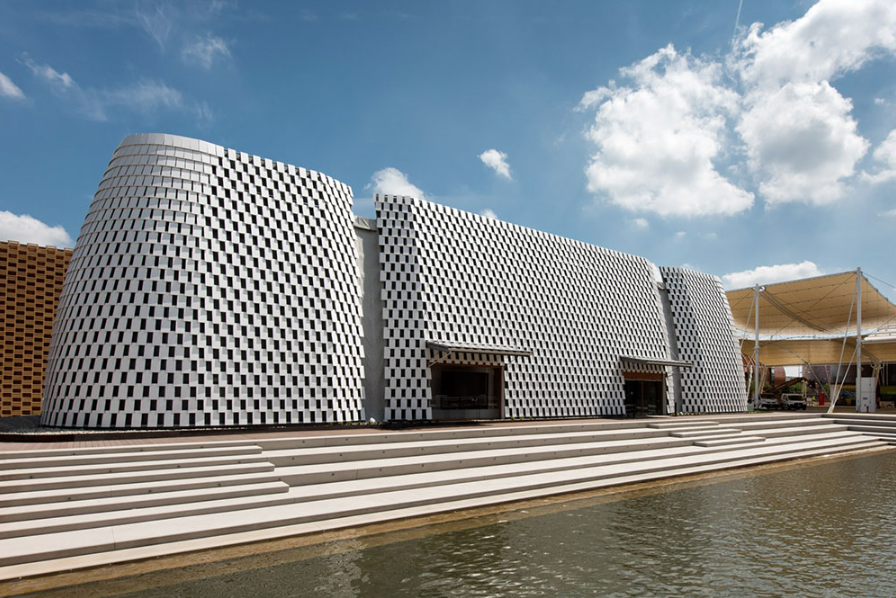DesignTech’s hybrid spaces create exciting opportunities for integrated development
The first technological innovation hub focused on encouraging the development of open innovation programs, and stimulating the diffusion of digital technologies in the design sector, is being established in Milan.
Dubbed DesignTech Hub Milano, it is part of the Milan Innovation District (MIND) located in the area that originally hosted Expo 2015, which is being redeveloped by International property and infrastructure group, Lendlease.
In a 2109 press release, Dan Labbad, CEO for Lendlease Europe, said: “Work is already underway on our plan to create an exceptional new district in Milan. The Milan Innovation District is a scheme with huge potential and one where, working alongside our partner Arexpo, we are looking to build a world-leading centre of scientific excellence alongside an outstanding and active mixed-use neighbourhood.”
As part of MIND, DesignTech Hub’s objective is to construct a large Living Lab with integrated co-working, co-living and co-factory spaces, designed to support and facilitate the rapid prototyping of new products by companies and startups.
Design Tech will also host suppliers of technologies and digital solutions that can help design companies scale-up emerging technologies.
The organization plans to achieve this goal by bringing together architects, designers, companies and industry professionals with technological startups from the most advanced innovation ecosystems at theinternational level – many of which are already present in Milan – to create a global design innovation hub under one roof.
But where did this concept come from? In a recent interview, posted in the online journal Today, Ivan Tallarico, founder and CEO of Hi-Interiors and DesignTech Hub Milano said: “during [Milano] design week we organized an open innovation event in Piazza Castello in the Fuori Salone circuit: realizing how difficult it was for young companies to scale up this business model, we proposed ourselves as a ‘bridge’between other start-ups in line with technologies linkedto the sector and an audience of industry insiders: professionals such as architects, designers and entrepreneurs.”
The hub’s facilities will include about 5000 m2 of integrated spaces for events, showrooms and a co-factory: a fully digitized laboratory designed to support rapid prototyping of new products from corporates and startups.
Startups and industry professionals can participate in this structure through a membership subscription (monthly, quarterly, half-yearly or annual) which will include desks and/or beds while established companies will have access to corporate memberships through packages that offer the use of co-working and co-living facilities for offsite R&D and HR teams in search of innovation and talent, as well as a hospitality structure for staff and clients in Milan.
While the DesignTech Hub facilities are planned to provide a neutral space for the design industry to meet and collaborate with startups, scaleups, innovative SMEs, and big tech companies, promoting and facilitating open innovation dynamics along the value chain, obviously the pandemic has slowed the project’s completion.
However, it has also sparked new conversations about the technology and design of future living and working spaces: “Covid has created a sense of urgency in the organization of living spaces in which we spend a lot of time” – explains Ivan Tallarico –“there is much more to be done to technologically enhance these places, from the use of effective air purification systems to smart materials with antibacterial characteristics”.
DesignTech Hub’s founder also agrees that, with the remote working boom, there is now a new urgency to redefining the use of spaces and social organization. Something that was confirmed by the Piepoli Institute survey – commissioned for DesignTech’s recentwhitepaper, entitled “DesignTech for the future: A Design Force to shape the post Covid-19 world” – which reports that 3 out of 4 Italians want to continue remoteworking (referred to as smart working in Italy).
The survey also noted that 8 Italians out of 10 thought that design would play an important role in redefining some aspects of everyday life, and 2 out of 3 believe that it will be vital to reorganize private spaces, while 85% think that public spaces will need to be revamped as well.
This means that workspaces must be completely redesigned: “The newly designed buildings will have co-working plans and proximity services,” Tallarico states, “what we expect is that 30% to 40% of office space will be occupied in the coming months, this will create real estate transformation systems.
Smart working is already a reality but must be managed, from digitization to virtualization of work, from ergonomic solutions to lighting.” Challenged by the constantly changing situation, DesignTech Hub has remained true to its founding concept and is rising to meet the challenge of the post-Covid city.
As is stated in the introduction to the project’s white paper, they havechosen “to initiate a debate over how design, togetherwith technology, can play a fundamental role in tracing the path from ‘before’ to ‘after’ Covid-19.”
Bonnie McClellan-Broussard
